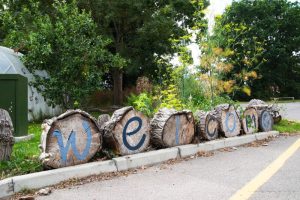It has been busy in the Sustainability Office this summer in preparation for the exciting forthcoming academic year! As well as plans to get even more students and staff involved with the work that we do, projects have been put into motion behind the scenes by the Facilities Management Building Services Team who are working hard to support us in our drive towards a more sustainable university. The University has set a target to reduce carbon emissions by 30% by 2015/2016 and 40% by 2020 from our 2009/10 baseline. To hit this target we have outlined a number of projects and the investment required in our Carbon Management Plan.
You can read more about our Carbon Management Plan in previous blogs: http://blogs.gre.ac.uk/greengreenwich/carbon-management-plan-update/ http://blogs.gre.ac.uk/greengreenwich/carbon-managment-plan-progress/ As we have come to the end of the financial year the Building Services Team have given us a brief update on the progress of some of the projects from the Carbon Management Plan. The budget for 2012/2013 was just over £1 million of which the team have spent just under £900,000 on a wide variety of carbon reduction projects across all three campuses. These projects include: Variable Speed Drive units on motors driving fans and pumps (for which the team was awarded Energy Efficient Installation of the Month in March 2013), boiler replacements and installation of thermostatic radiator valves.


Operation of a system with and without a variable speed drive (Image from http://www.carbondescent.org.uk/blog/?p=143)
Two major lighting improvement project at Medway and Greenwich by replacing old fittings with new LED ones and installing a multitude of sensors to control them (automatically dimming as well switching the lights on and off). Another major project has been the upgrade of the Building Management System at the Avery Hill campus, which will be completed by the end of September and puts the campus on the Trend system and in line with our other campuses. To reduce corrosion in our heating and chilled water systems the team have installed specialist equipment for removing the noncondensable gases. The feasibility study into a Combined Heat and Power Unit at Medway campus has been carried out and this includes the feasibility of using a zero carbon fuel- glycerol. The findings of this all feed into the Ecotec research project that the University as a major partner in. To save water the team have converted all of the urinals at Avery Hill to a waterless type and are working across the other two campuses.
To improve the University’s ability to measure water consumption we have installed a water meter on each of the main buildings at Medway. This project and several others do not reduce carbon output directly, however, the University is committed to tackling water conservation as well as carbon reduction. The remaining technical projects, costing £750,000, are estimated to save around 730 tonnes of carbon per annum. If you have any question regarding our carbon saving projects or the plan itself please contact Nigel Heugh in the Building Services Team N.Heugh@greenwich.ac.uk or Emily Mason in the Sustainability Team E.Mason@greenwich.ac.uk.









































